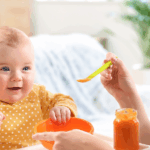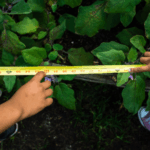
Top tips: parental involvement in early years activities at home
There is an abundance of research that demonstrates the importance of parents and carers in a child’s life, and the significant impact that parental involvement in children’s education has on their learning, with positive effects that last into adulthood. Read our top tips to ensure you create supportive strategies for home learning opportunities to all families.
Top tips for encouraging parental involvement
- As a team, review your approach to home learning. Is it consistent across the provision? Do all parents receive the same support and opportunities to be involved in their child’s learning experiences?
- Create a strategy (if not already in place) for sharing opportunities for extending learning through activities in the home
- When planning home learning activities ensure you consider your families e.g. keep activities time efficient, simple to complete and ensure that parents do not require any extra resources or financial outlay to complete the activities. Plan activities with resources that can be found in and around the home so that all parents and children can take part in e.g. observing shapes in the environment as they do their weekly shop or walk to the setting
- Consider whether parents will need extra resources to carry out activities and if so, can you supply them?
- Consider the individual needs of your families, do you need to provide translation for instructions, do some families need a practical demonstration?
- Provide clear instructions, the learning possibilities and the benefits of the activity, e.g. if a child has been fascinated by water and pouring from jugs you may suggest that the parents provide some water and different sized containers at bath time, at the kitchen sink or outdoors in their garden. Add the range of learning potential for maths such as size, capacity, and volume and suggest some new vocabulary for parents to introduce during the play. This will help parents to understand the role of play, support them to take an active role in the home learning activities and have fun with their child
- Seek feedback from parents so they feel their input and observations are valuable and supportive for their child’s learning and development
NDNA products to support you with this activity
- Developing Positive Relationships (factsheet)
- Home Learning Environment (Development Zone Course)
- Parents as Partners template policy
Disclaimer: Activities with children must always be risk assessed, including for allergies or choking. Children must always have adequate supervision. Resources and materials must always be appropriate for children’s age and stage of development.
- MyNDNA
- Tips
Similar Articles
Top tips: Using mathematical language everyday with young children
The new Statutory Framework for the EYFS places an emphasis on children developing a love of…
Read more 
Early years activity: Non-standard measures
Children need opportunities to physically experience and compare different types of measures such as length, size and height, so provide lots…
Read more 

